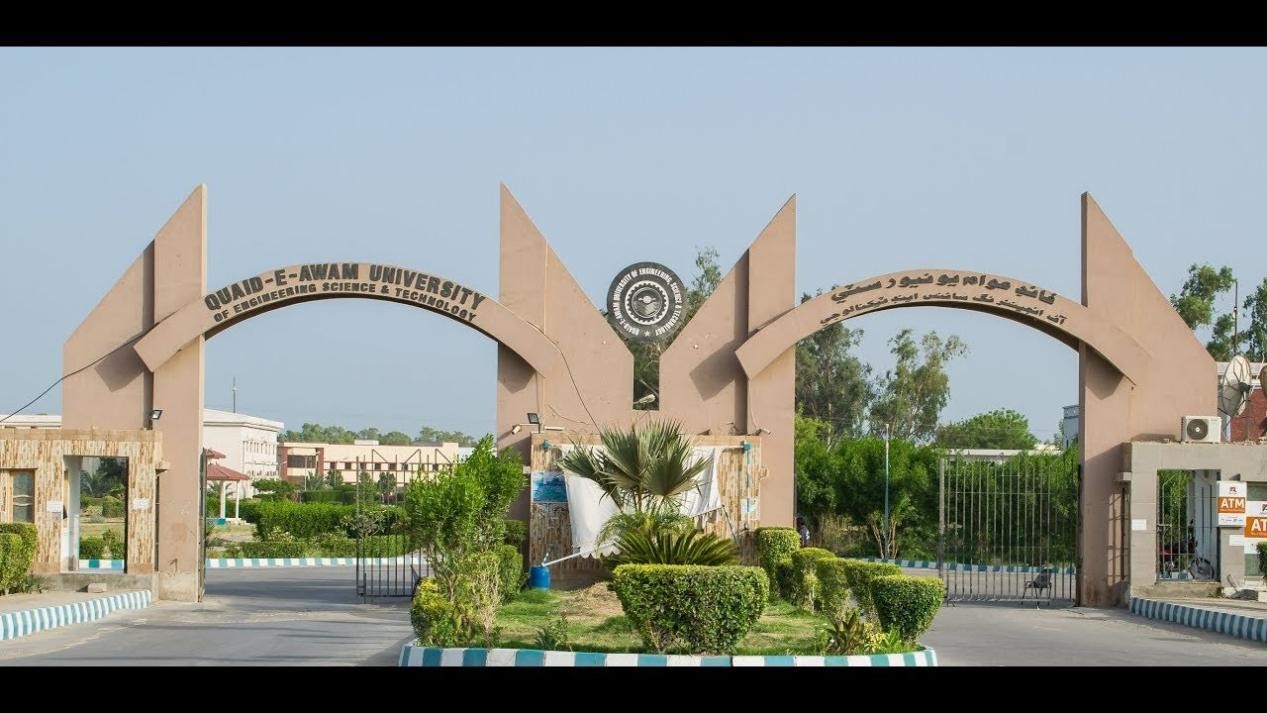Literature as a Reflection and Catalyst of Socio-cultural Change
Organizer:
Department of English, Quaid-e-Awam University of Engineering, Science and Technology, Nawabshah, Pakistan
Date:
November 15th, 2025 (UTC+5)
Symposium Chair:
Dr. Abdullah Laghari
Lecturer of Quaid-e-Awam University of Engineering, Science and Technology,
Nawabshah.
Personal Bio:
Dr. Abdullah Laghari is working as Lecturer at the Department of English, Quaid-e-Awam University of Engineering, Science and Technology, Nawabshah, Pakistan. He possesses a vast teaching experience at the university level. His research expertise lies in English Language Teaching, Professional Development, Teacher Education, etc. At his university, he has conducted several teacher education workshops, and seminars for novice and prospective teachers and professionals respectively. He has authored and co-authored many research articles in national and international journals. Dr Laghari has also presented many research papers at national as well as International conferences. He is recently done with his PhD research in Applied Linguistics from the University of Sindh, Jamshoro, Pakistan. He has completed a course "Professional Development of Teacher Trainers from Arizona University USA. He is also the reviewer of the International Journal of English Teaching and Learning. He is an Alumni of the Online Professional English Network OPEN. Besides, he is a member of 'The Society for Pakistani English Language Teachers' SPELT which is loacated in Karachi. At his University, he is a member of the Vice Chancellor's special committee 'The students' Consultative Bureau' SCB. Within a short period, Dr Laghari has emerged to be an innovative teacher, active researcher and master trainer. Most importantly, he has been playing an instrumental role in organizing conferences and delivering keynote talks at an international level.
Committee Members:
| Summaya Dahri | Department of English, QUEST | rajputsumayaalam@gmail.com |
| Mehak Dahri | Department of English, QUEST | mehakdahri2@gmail.com |
| Shan Kumar Oad | Department of English, QUEST | oadshan6@gmail.com |
| Amjad Ali Zardari | Department of English, QUEST | zamjadal82@gmail.com |
| Alisha Fatima Allahyar | Department of English, QUEST | alishamuhammadyaar@gmail.com |
Call for Papers
Background:
This framework positions literary works as dynamic instruments that both document and propel socio-cultural dynamics, establishing literary studies as an essential discipline for interpreting and influencing global discourses. The conceptual foundation of this approach is deeply embedded within longstanding theoretical debates concerning the relationship between artistic production and societal structures. Literature maintains profound connections with human experience, serving as both a record of collective consciousness and an agent of ideological transformation. Historically, literary movements have consistently functioned as emancipatory forces, seeking to liberate marginalized groups from systemic injustice, inequality, and oppression. From abolitionist narratives and proletarian literature to postcolonial writing and contemporary feminist and anti-racial discourses, texts have not only reflected societal conditions but have also actively dismantled oppressive structures. In modern contexts, literature continues to inform and inspire social movements playing the role as a medium of reflection and a catalyst for meaningful change.
Goal/Rationale:
A central challenge within this domain persists: the precise theoretical formulation and empirical quantification of literature’s catalytic function. To address this, the field must adopt interdisciplinary methodologies, broaden its scope beyond canonical Western texts to incorporate the rich literary traditions of the Global South, and critically engage with evolving digital and media environments. Such an expansion would facilitate a shift from anecdotal assertions toward a rigorously evidence-based paradigm, illuminating literature’s unique role as a medium for both interpreting and transforming society. This requires moving beyond textual analysis alone to include the material and social dimensions of literary production and reception—such as publishing histories, distribution networks, translation practices, and audience responses—which are critical to understanding its socio-cultural impact. Furthermore, scholars must confront the analytical complexities posed by contemporary media convergence, namely, differentiating literature’s specific influence from that of other cultural forms like film, social media, and music. Equally imperative is the revaluation of historically marginalized genres—including non-fiction, speculative fiction, graphic narratives, and digital literature—whose potential to effect socio-cultural change has been substantially underestimated.
Scope and Information for Participants:
This field of study examines the dynamic and reciprocal relationship between literary production and socio-cultural systems. Its scope spans diverse genres (novels, poetry, drama, essays, oral traditions, and digital narratives), historical periods, and geographical contexts. It interrogates how literature both documents and gives rise to societal values, power structures, identities, and transformations. The approach is inherently interdisciplinary, drawing on literary theory, sociology, cultural studies, history, and political science to analyze texts not as isolated aesthetic objects but as active participants in cultural discourse.
Topics
The main topics of this symposium are listed below.
Literature & Translation
- Contemporary and New Century Literature
- Literary Theory and Criticism
- Digital and Network Literature
- Gender Studies in Literature
- Cross-Cultural and Literary Translation
- Technical Translation and Localization
- Classical and Ancient Literature
- Multimedia Translation and Adaptation
- Regional and Comparative Literature
- Environmental and Eco-Criticism in Literature
- Literature and Poetry
History & Philosophy
- Ethics and Applied Philosophy
- Metaphysics and Epistemology
- Political Philosophy and Governance
- Philosophy of Science and Technology
- Environmental and Climate History
- Military and Diplomatic History
- Religious and Cultural History
- Social Movements and Public History
- Post-Colonial Studies and Global History
- Philosophy of Mind and Consciousness
Culture & Sociology
- Digital Sociology
- Sociology of Climate Change
- Migration and Globalization
- AI and Society
- Sociology of Technology
- Social Media Impact
- Post - Colonial Sociology
- Sociology of Mental Health
- Inequality and Social Justice
- Gender Studies in Sociology
- Core Fields (e.g., Theoretical Sociology, Historical Sociology)
- Specialized Areas (e.g., Urban Sociology, Criminology, Rural Sociology)
Meanwhile, submissions aligned with the overall conference theme are also welcome.
Journalism & Mass Media
- AI in Journalism
- Digital Transformation in Media
- Social Media Journalism
- Data Journalism
- VR and AR in Media
- Blockchain and Media Ownership
- Ethics in Digital Media
- Influencer and Social Media Journalism
- Cross-Platform Journalism
- Public Interest Media
- Traditional Sectors
- (Print Media, Electronic Media, Opinion Journalism)
- Specialized Journalism Types
- (Investigative, Political, Entertainment Journalism)
- Film and Film Production
- Photography and Film Production
- Theater and Film Studies
Fine Arts & Design
- Artificial Intelligence in Art
- Visual Arts
- Generative Art
- Immersive Installations
- NFTs and Digital Ownership
- Interactive Art
- Data Visualization Design
- Sustainable Art Practices
- Contemporary Art
- Art Criticism
- Animation Production
- Music and Dance Studies
- Bio-Art and Biodesign
- Traditional Media (Drawing, Painting, Sculpture)
- Digital Media (3D Animation, UX Design, Corporate Design)
- Commercial Design (Advertising, Editorial Design)
Submission:
Prospective authors are kindly invited to submit full papers that include title, abstract, introduction, tables, figures, conclusion and references. It is unnecessary to submit an abstract in advance. The deadline for general submission is November 8, 2025. Each paper should be no less than 4 pages. One regular registration can cover a paper of 6 pages, and additional pages will be charged. Please format your paper well according to the conference template below before submission. Paper Template Download
Please prepare your paper in both .doc/.docx and .pdf format and submit your full paper by email with both formats attached directly to sympo_nawabshah@icihcs.org
Important Dates
Submission & Payment
|
Fees
|
Publication
Accepted papers of the symposium will be published in Communications in Humanities Research (Print ISSN 2753-7064), and will be submitted to Conference Proceedings Citation Index (CPCI), Crossref, CNKI, Portico, Google Scholar and other databases for indexing. The situation may be affected by factors among databases like processing time, workflow, policy, etc.
Proceeding Title: Communications in Humanities Research
Press: EWA Publishing, United Kingdom
ISSN: 2753-7064(print) / 2753-7072(electronic)
* The papers will be exported to production and publication on a regular basis. Early-registered papers are expected to be published online earlier.
This symposium is organized by ICIHCS 2025 and it will independently proceed the submission and publication process
Highlights:
The Department of English at Quaid-e-Awam University of Engineering, Science, and Technology, Nawabshah, organized an academic symposium titled "Literature as a Reflection and Catalyst of Socio-cultural Change." In his keynote address, Dr. Abdullah Laghari emphasized on the seminal role of literature. He opined that literature functions as a crucible for fostering positivity and cultivating critical thinking among its readership. Extending this argument, Dr. Laghari contended that literary engagement serves as a powerful impetus for positive social reform, advocating for emancipation from various forms of oppression, including injustice, inequality, and gender discrimination. Symposium participants further contributed valuable insights, underscoring the necessity of germinating a robust literary culture as a prerequisite for societal stability and enhanced literacy. To contextualize this discourse, Dr. Laghari drew upon historical examples, analyzing specific events and movements where literary works acted as a catalyst for revolutionary consciousness among oppressed section of the society. The proceedings concluded in a consensus that literature constitutes both a fundamental sustenance for the human spirit and a contemporary imperative. It was concluded that guiding the youth towards a profound engagement with literature is essential, as it provides a critical pathway to prosperity by functioning as a primary agent of socio-cultural transformation.
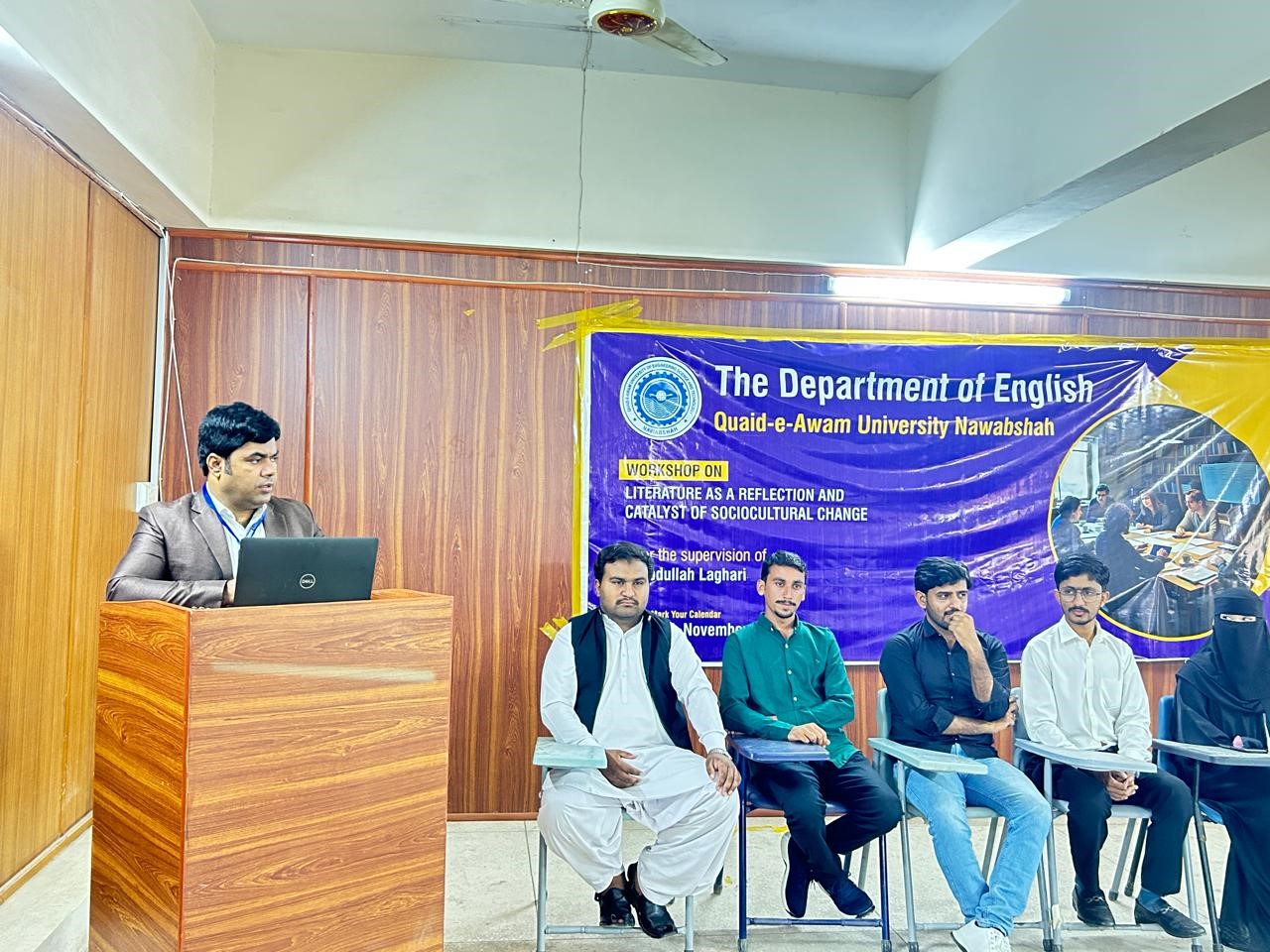
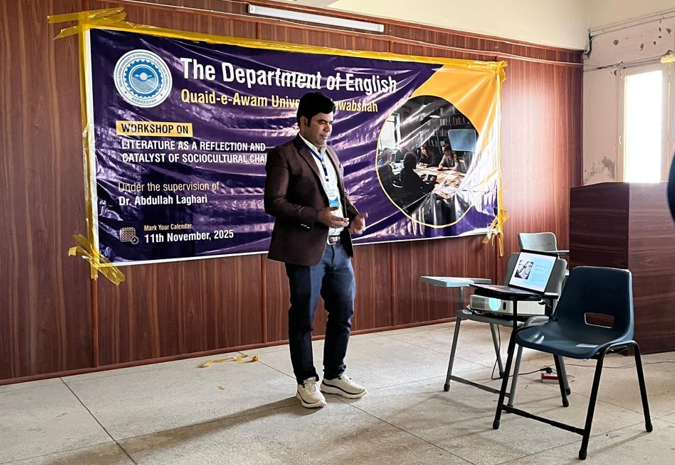
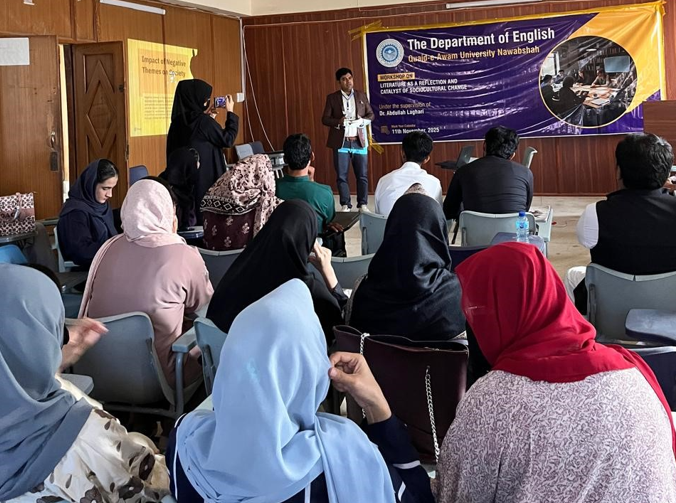
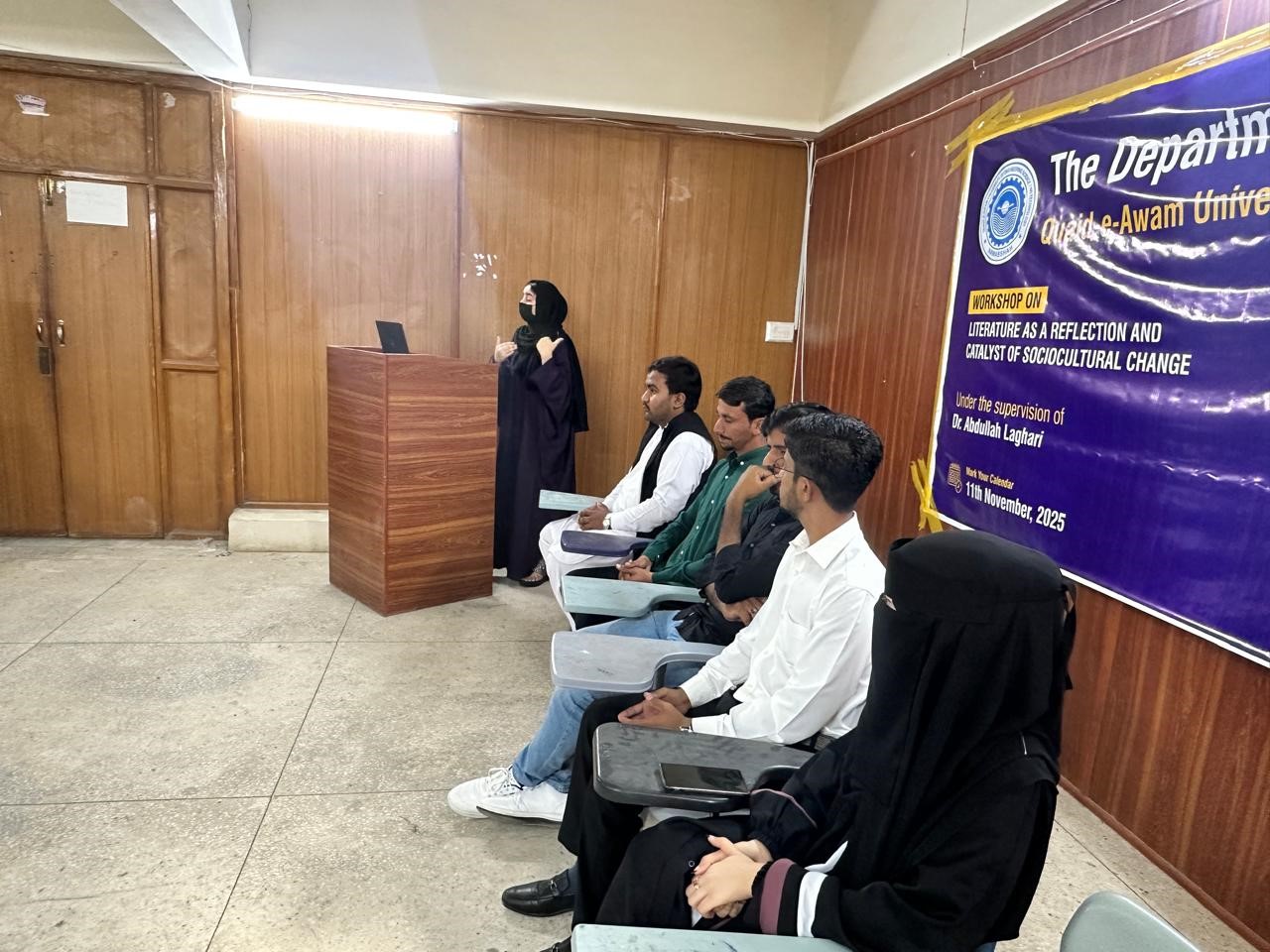
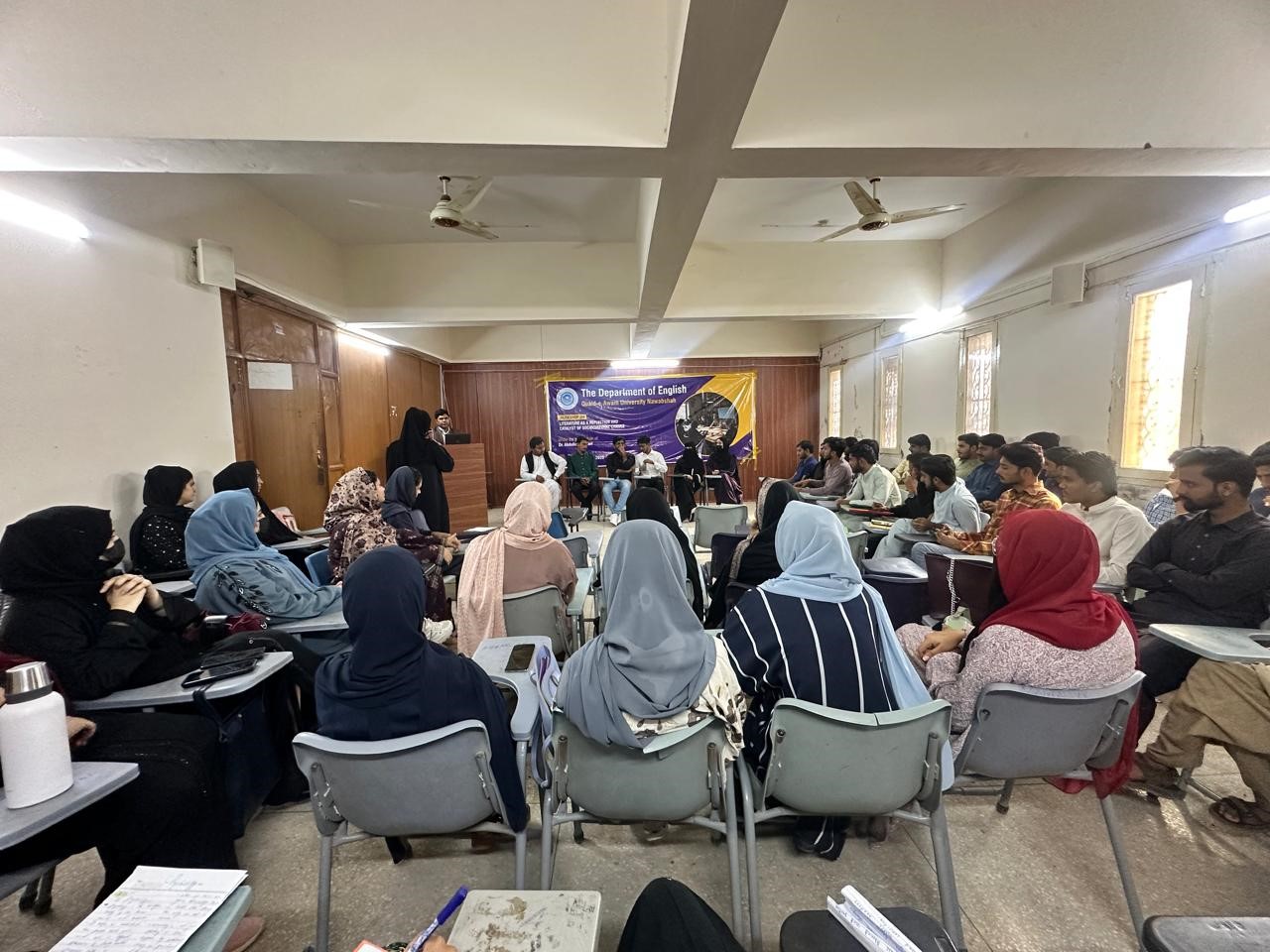
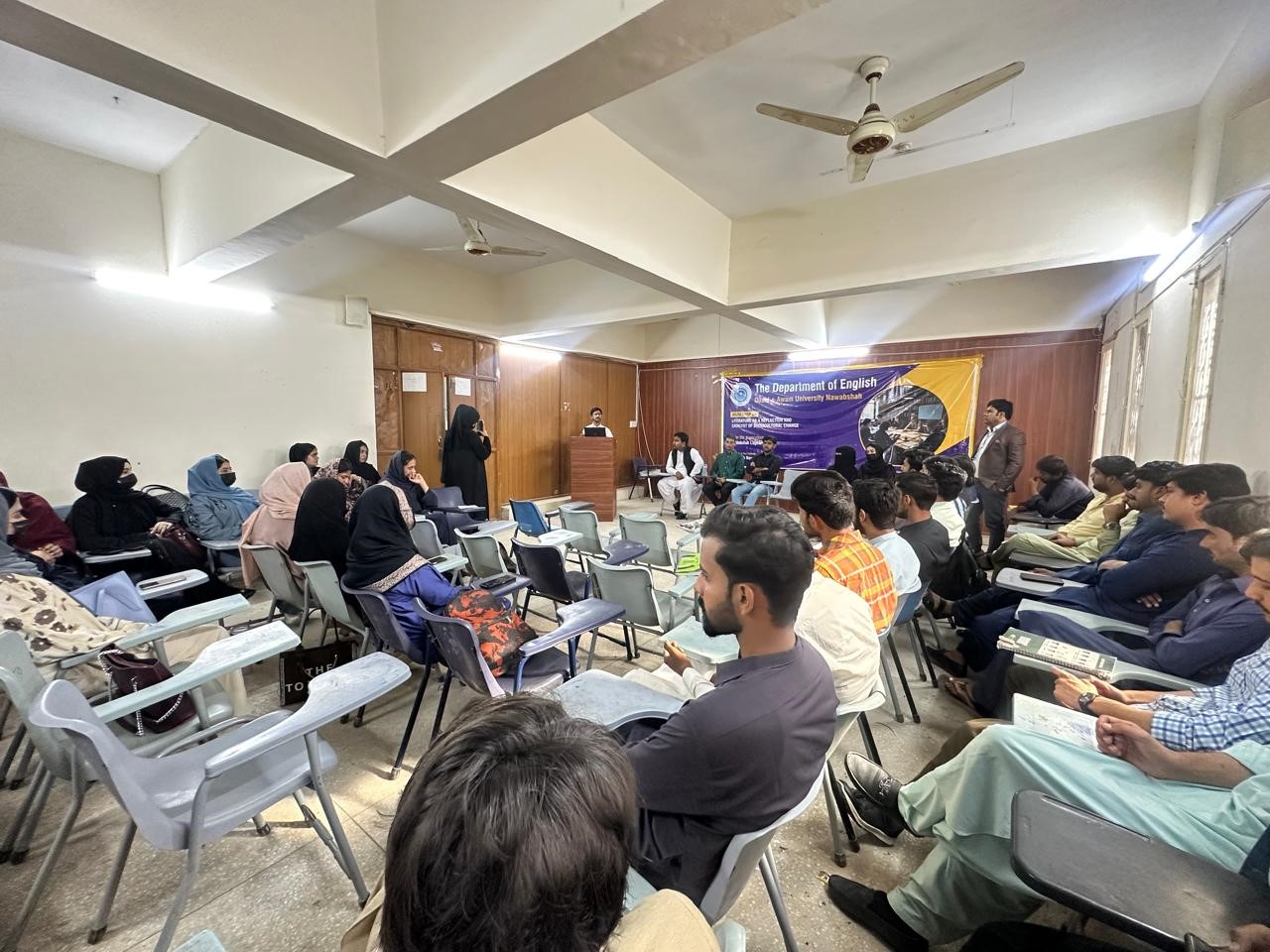
Access to Symposium: ICIHCS 2025 Symposium -- Nawabshah - YouTube
Venue:
Quaid-e-Awam University of Engineering, Science and Technology, Quest, Haqani town Nawabshah, 67450, Pakistan

VISA:
Welcome to GOV.UKIn order to ensure the information is correct and up to date, there may be changes which we are not aware of. And different countries have different rules for the visa application. It is always a good idea to check the latest regulations in your country. This page just gives some general information of the visa application.
How to apply?
The online application process at Pakistan Online Visa can be completed in 3 Easy Steps. Before starting your application, please go through the instructions for each step below: Application Items
Step 1: Preliminary Assessment
Choose your visa and understand the eligibility and document requirements before you apply.
Step 2: Preparation
Please ensure that you are applying for the right visa as each visa has its own set of required documents. You must have the following on-hand before you begin your application:
- Complete set of supporting documents.
- Photograph up to 350KB captured as explained in the Photograph Tutorial.
- Valid Credit Card/Debit Card for online payment of your application fee.
Step 3: Online Application
When you are ready to apply, follow the steps outlined below:
- Click on the Apply Now button to launch the Pakistan Online Visa System.
- Create a New Account.
- Login to the Pakistan Online Visa System.
- Complete your application.
- Pay Fee through a Credit Card/Debit Card.
- Submit your Application.
NOTICE:
Should your application be denied, the organizing committee cannot change the decision of visa officer, nor will ICEMGD engage in discussion or correspondence with the visa application center on behalf of the applicant. The registration fee CANNOT be refunded when the VISA application of individual being denied.
